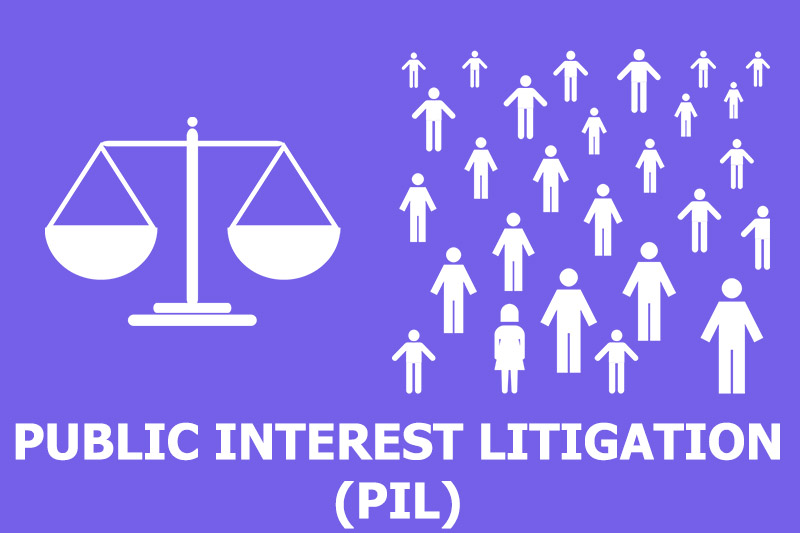As the name suggests it is related to the interest of the public.
PIL is litigation undertaken to secure public interest and demonstrates the availability of justice to socially-disadvantaged parties.
Who Can File a PIL?
An individual, a group of citizens, or non-governmental organizations may file a public interest lawsuit (PIL). A PIL does not always need to be filed by the party who feels wronged. Any person may submit a PIL. The only requirement is that it must be filed in the public interest rather than for personal benefit.
If the issue is extremely important, the Hon’ble court may even exercise suo moto jurisdiction.
Where Can A PIL Be Filed?
An expansion of a writ petition is a PIL. PILs in India are governed by two articles that control the process of filing a PIL. Either the Supreme Court or the High Court may receive a public interest litigation.
A Public Interest Litigation (PIL) may be filed under Article 226 of the Constitution with the High Court and under Article 32 with the Indian Supreme Court.
If you are filing a Public Interest Litigation (PIL) in the Supreme Court, you must file five copies of the PIL. The copies will only be served to the respondents after the court issues a notice about the PIL.
Nevertheless, you must submit two copies of your PIL to the High Court when filing.
How to File A Public Interest Litigation?
Filing a PIL is not as complex as you think. Even a simple letter or a postcard addressed to the Chief Justice of India or the Chief Justice of the High Court are enough to raise your issue. But following a proper process is better if you can. You can follow these major steps to file a Public Interest Litigation.
Gather all the information related to the issue-
*Ensure collation of the documents.
*Deciding the court in which you want to file.
*To file a PIL in High Court, address it to the Chief Justice of that particular High Court.
*If you are filing it in the Supreme Court, the address should be made to the Chief Justice of India.
*When filing it in the High Court, submit two copies and should also serve a copy of the PIL to the respondents in advance.
*When in Supreme Court, file five copies of the PIL and the copy of the PIL will be served to the respondents only when the court will issue a notice regarding the same.
*Consult a professional and experienced PIL lawyer before filing a PIL as it can save your time in unnecessary things.
Documents Required to File A PIL-
*The petitioner should mention Petitioner’s name, postal address, email address, phone number, occupation, annual income and PAN number.
*Proof of identity of the Petitioner must be annexed.
*List names and addresses of all aggrieved parties.
*List names and addresses of respondents or government agencies from which relief is sought by the petitioner.
*Facts of the issue or case leading to fundamental rights violation
*Nature of violation or injury
*Any personal interest she/he/it may have.
*The petitioner should also clarify about whether they will be able to pay the costs in case the court may impose any.
Do I Need A Lawyer to File A PIL?
You can either present the matter in person or can also hire a Public Interest lawyer to represent you. But, it will be a wise decision to hire a lawyer to file PIL.
How Much Money Is Required to File A PIL?
It is not expensive at all to file a PIL. A court fee of Rs. 50 must be paid by the petitioner for each respondent and attached to the petition. But the price an advocate pays to pursue a case differs depending on the advocate.
However, make sure this is not a pointless PIL before filing it. If not, you can be charged by the court for squandering its time.
You Can File PIL For-
*Violation of basic human rights of poor and disadvantaged people.
*Government policies can violate human rights, lead to corruption, or affect social justice.
*To compel Municipal authorities to perform their basic duties.
*Violation of religious or fundamental rights
You Cannot File A PIL For-
*Matters related to services
*Matters related to gratuity, pension, salary, etc.
*Landlord-tenant matters.
*Complaints against central and state government departments and local bodies excluding issues listed in the Supreme Court guidelines.

